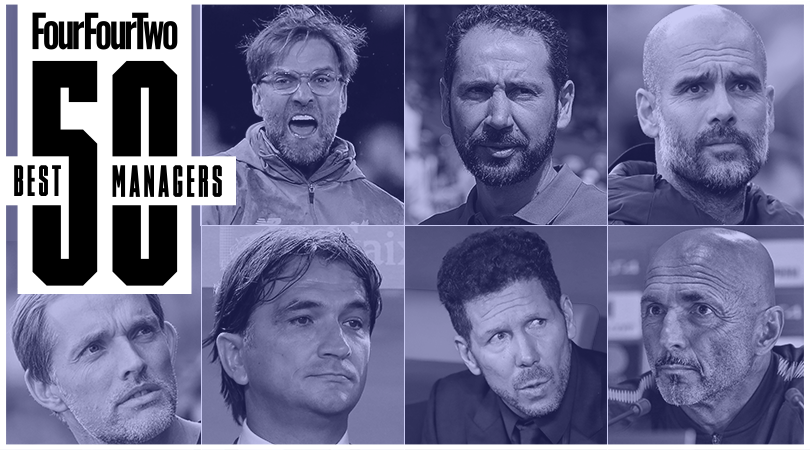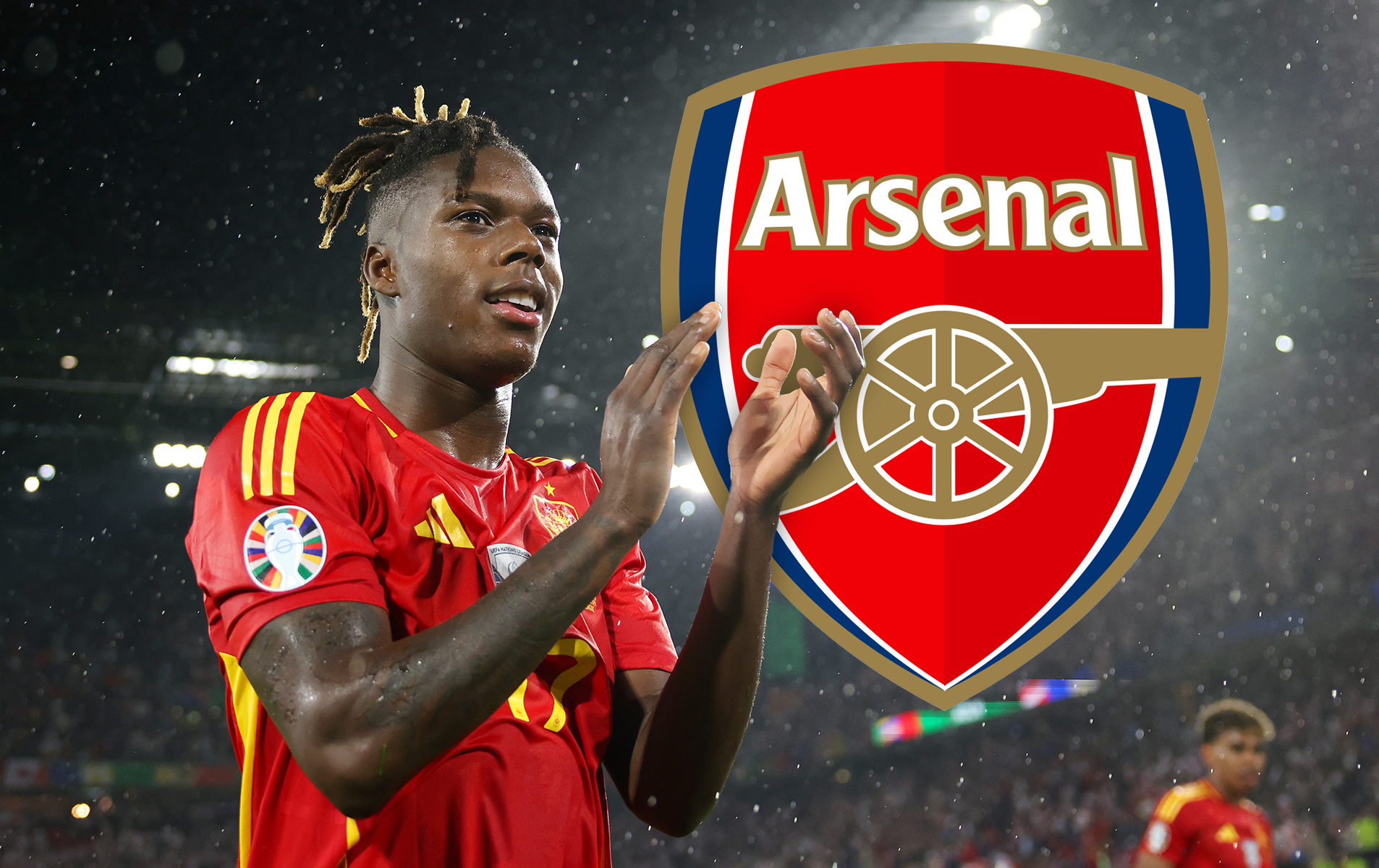Ranked! Every Premier League club by how ‘big’ they are
It’s time to finally sort the big kahunas from the small fries, as we apply science to separate the current Premier League sides by size
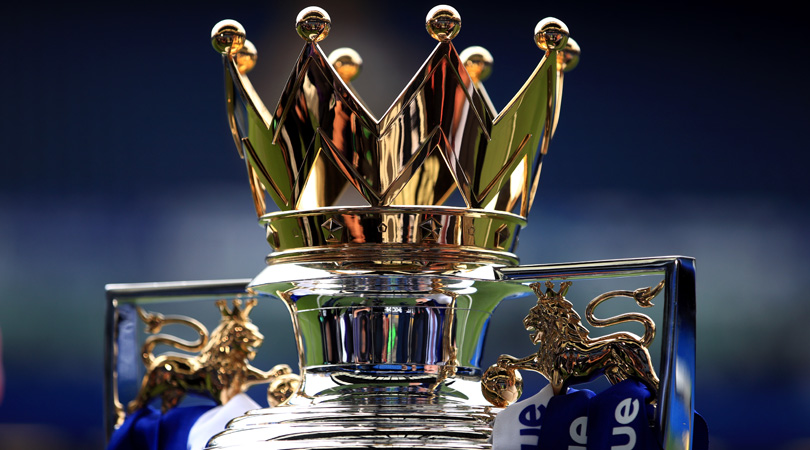
Assessing the size of a football club isn’t simple. You can’t get the tape measure out and determine whether your club is reasonably Jordan Pickford-sized or a whopping Real Courtois.
To determine the relative size of each current Premier League club, we’ve taken into account five varied factors. Namely: history, recent success, UK fanbase, global fame and, of course, financial clout. Let us begin...
20. Cardiff

Well, at least they’re the biggest Welsh club in the Premier League. In truth, Cardiff are impressively punching above their weight just by appearing in the top flight. They had only the 14th highest attendance in the Championship last season, with empty seats notable despite the Bluebirds' promotion surge.
The history books don’t help much. Cardiff won the FA Cup in 1927, but 2013/14 was their first top-flight season in 51 years. That stay was brief and their visit in 2018/19 could be similarly so, despite the reported $1.3 billion wealth of owner Vincent Tan.
19. Huddersfield
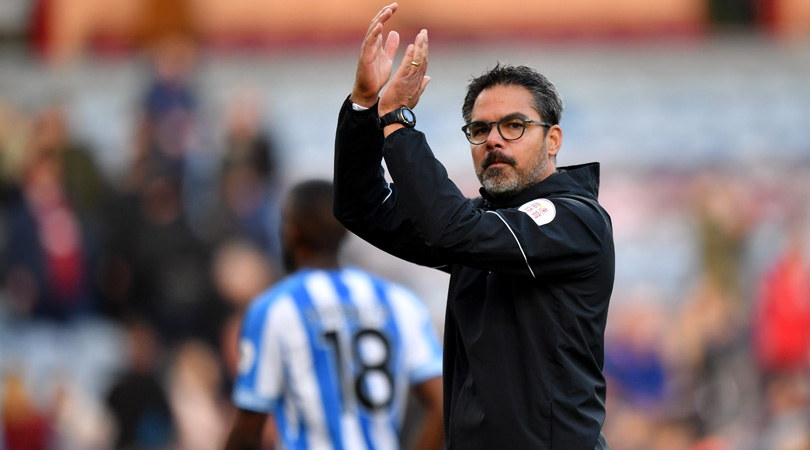
As Terriers’ fans loudly remind opponents, this is a club that’s “won the league three times in a row”. That prestigious hat-trick came in the 1920s, however, and the reason manager David Wagner is considered a miracle-worker is because he’s taken a club that was clinging to Championship status and led them to an unlikely Premier League promotion.
Get FourFourTwo Newsletter
The best features, fun and footballing quizzes, straight to your inbox every week.
On the plus side, the John Smith's Stadium is a lovely ground and the club are investing in improved training facilities. Yet Huddersfield are some way off being the biggest club in Yorkshire, let alone one of the largest in the land.
18. Bournemouth
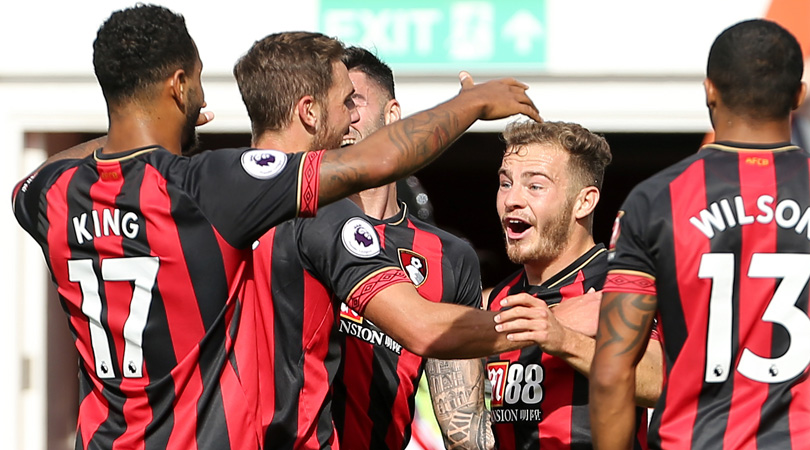
The Cherries are a strange fruit. On the one hand, their piddly 11,000-seater stadium and the fact that they’d never had a sniff of top-flight football until 2015 marks them down as the league’s minniest minnow.
Yet we can’t live in the past: since achieving promotion, Bournemouth have finished an average of 12th and invested in the squad (Jefferson Lerma set them back £25m this summer). Meanwhile, plans are ongoing for a new stadium. Bournemouth may have no historical standing, but they’re writing their own history right now.
17. Brighton

SEE ALSO How Brighton went from the brink of extinction to the Premier League – told by their heroes
A tricky club to place. Brighton have no glorious past, and as recently as 20 years ago the club was staring into the barrel of liquidation and a place in the Conference. Promotion to the Premier League has been no fluke, however, but a result of long-term planning and investment, particularly in a new 30,000-seat stadium.
Brighton are in just their second season of Premier League football and retain plucky underdog status. Yet owner Tony Bloom has spent over £100m in player transfers since last summer and, with a decent catchment area for fans, the Seagulls are heading to new heights.
16. Burnley
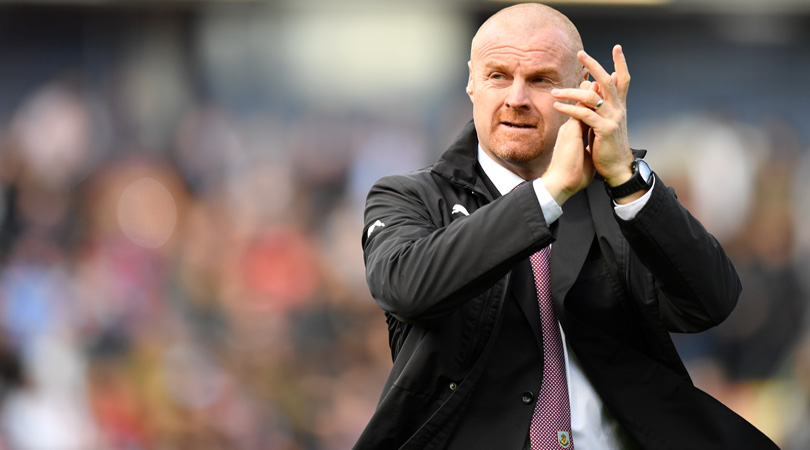
Like Huddersfield, Burnley have ‘previous’, boasting an FA Cup and two league titles in the past. Yet that was several generations ago and Burnley spent the majority of the 1980s and ‘90s in the third and fourth tiers.
Then Sean Dyche gravelled up in 2012 and has gradually established them as a Premier League club. Last season’s seventh place may have been a dramatic overachievement, but it’s been done via prudent planning (Burnley had the Premier League’s lowest wage bill in 2016/17). Not a glamorous name, but their solid foundations put some of the go-for-broke big boys in the Championship to shame.
15. Fulham
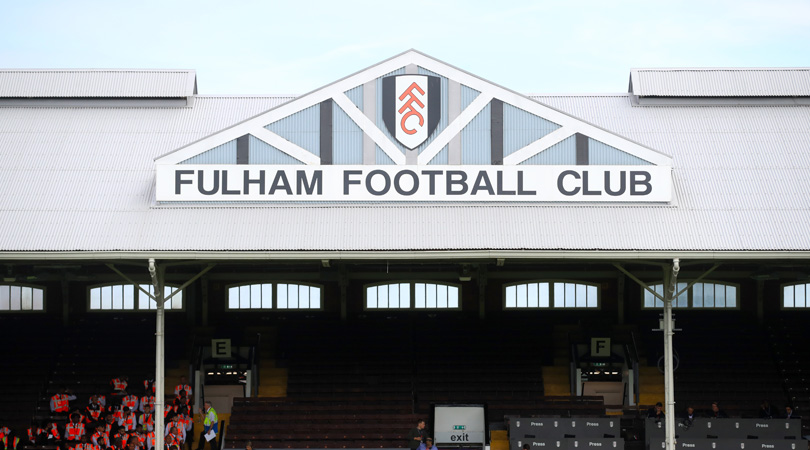
No disrespect but Fulham feel like a small club. The homely, picturesque Craven Cottage stands in contrast to the shiny super-stadiums built by London neighbours Arsenal and (presumably one day) Tottenham.
Yet this sleepy club has grown in stature, sparked by Mohamed Al-Fayed’s purchase in the 1990s. Since 2001, Fulham have spent 14 out of 18 seasons in the Premier League and reached a UEFA Cup final. This summer the club, now owned by billionaire Shahid Khan, spent £25m on Jean Michael Seri – a recent Barcelona target. Not so snoozy now.
14. Watford
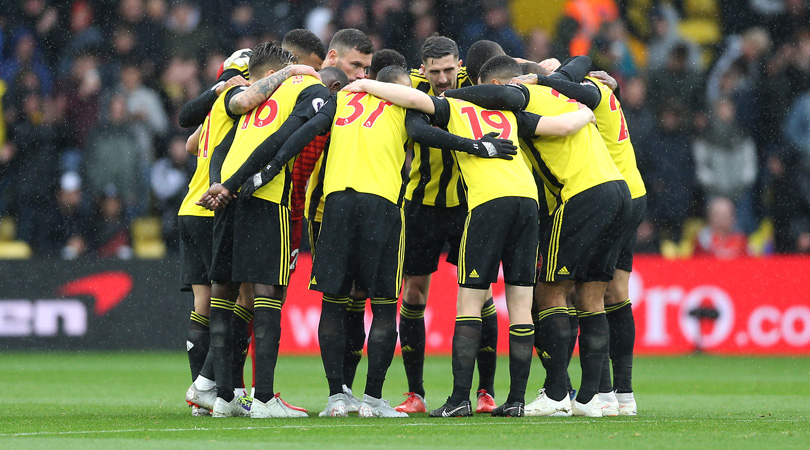
Lower-league tiddlers until the 1980s, when the dream duo of Graham Taylor and Elton John rocketed Watford up the divisions to the highs of an FA Cup final and runners-up spot in the league. They've yo-yoed a bit since, but Pozzo family investment has seen Watford cement their place in England’s elite.
Watford are now viewed as a destination club for promising players, albeit ones who may then head to bigger things (see: Richarlison), and have gradually expanded Vicarage Road. Their yellow-and-black kit is increasingly becoming part of the Premier League furniture.
13. Wolves

Formed way back in 1877, only three clubs (Arsenal, Liverpool and Manchester United) have earned more all-time points in English football than Wolves. The problem is, that trio have nabbed the vast majority of their points in the top flight, whereas Wolves have wandered the divisions accumulating theirs.
Yet England’s dominant team of the 1950s have bitten back of late. The strong ties to super-agent Jorge Mendes might not sit easily with some, but it has made Wolves a key destination club for prime European talent. They'll probably never be the force they once were, but are one of the biggest and best promoted Premier League sides in a long time.
12. Crystal Palace
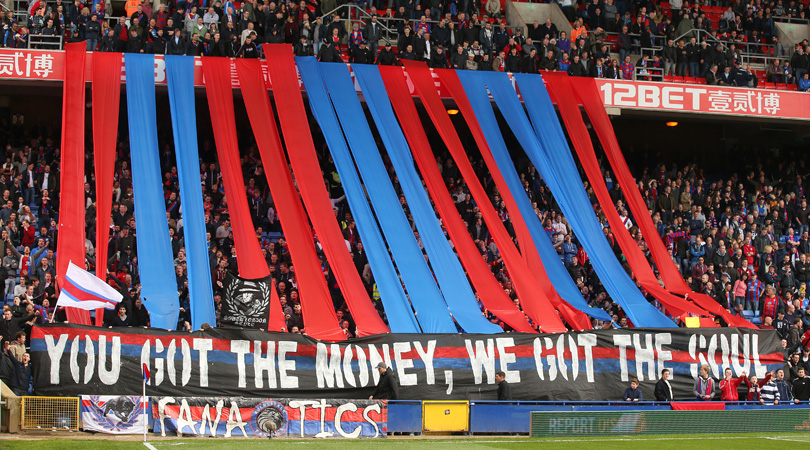
Historically, Palace have nothing on the likes of Wolves, Burnley and Huddersfield – all below them on this list. Yet the Eagles feel like a growing modern club. Now in their sixth consecutive season in the Premier League, you only need to look at their playing staff to see that this is a stronger club than it first appears.
How many other clubs could have held onto Wilfried Zaha (the best player outside of the league’s top six) this summer? And while Christian Benteke has struggled, the fact that Palace can buy a Belgian international striker for £32m gives a hint of their financial muscle. A packed Selhurst Park also offers the best atmosphere of London’s larger sides.
11. Southampton

Despite that dip into the third tier from 2009 to 2011, Southampton are a Premier League staple. Of the 27 seasons (including this one) since the division was rebranded in 1992, the Saints have been present for 20 of them.
Early years were mainly concerned with dramatic relegation escapes, but Southampton have been stronger after returning in 2012: their average finishing position is 10th since. They've earned a reputation for unearthing talent, then of selling it on – but always to top clubs (i.e. Liverpool). Southampton are now too sizeable to be pushed around by anyone but the biggest of boys.
10. Leicester

Perhaps they wouldn’t be this high without that miraculous Premier League triumph, then run to a Champions League quarter-final. But modern history is still history and this club has, in the last four years, garnered a sort of global renown due to their remarkable exploits.
Leicester will now forever be a byword for beating the odds. Next time you draw a no-hoper in a World Cup sweepstake, some oaf will chirp: “You never know! Look at Leicester in 2016…”. The club have shown strength after that success, too: Riyad Mahrez was held onto for an extra two seasons, while Jamie Vardy turned down an Arsenal move to stay put. A growing (King) power.
9. West Ham
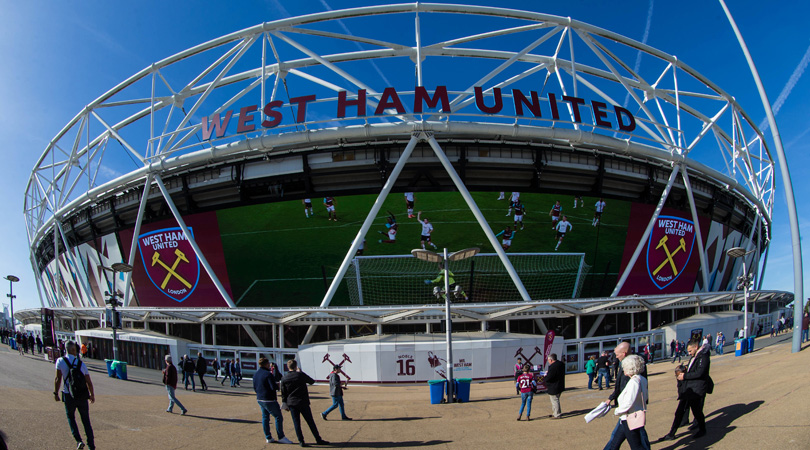
The most high-profile English club that hasn’t ever won a top-flight league title. Damning with faint praise perhaps, but West Ham have always had a reputation grander than their trophy haul (three FA Cups and 1965’s European Cup Winners’ Cup).
That’s partly due to an acclaimed youth system that produced the backbone for England’s 1966 World Cup win (though you’ll never hear Hammers fans speak of it – honest) and more recently, players packing the serious quality of Rio Ferdinand, Frank Lampard and Michael Carrick.
The production line may have stalled a bit lately, but West Ham have been a Premier League outfit for 23 of the 27 Prem seasons. Their 2016 move to the vast London Stadium appeared a major coup, but has not gone smoothly – apt for a club which has a romantic aura but often lapses into tragicomic territory. Speaking of which...
8. Newcastle
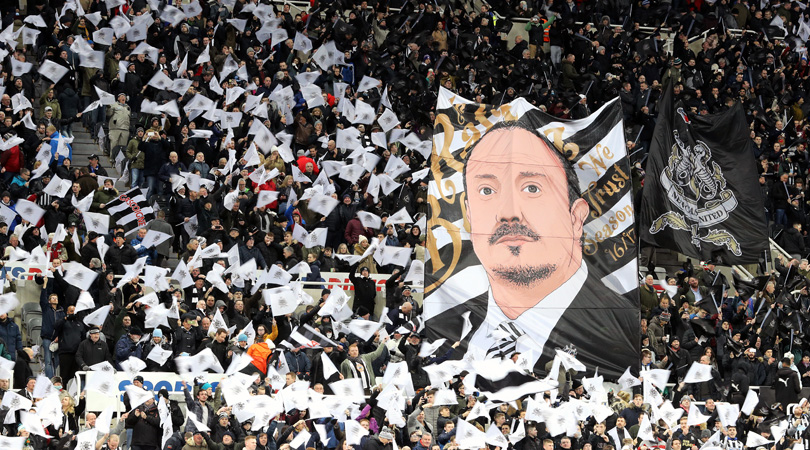
SEE ALSO Howay the entertainers: Reliving Newcastle's 1995/96 title challenge, by the players
The doziest of sleeping giants. A football club that hasn’t won a major honor since 1955 (the last of six FA Cups, preceded by four top-division titles) yet retains a mystique. A big part of that is the loud and loyal fans, packing the 52,000-capacity St James’ Park despite the often dire fayre on offer.
Their lofty position here is helped by Newcastle getting good just as the Premier League was booming post-Euro ’96. Kevin Keegan’s side which finished second twice in 1996 and 1997 are recalled lovingly by neutrals as well as by the Geordie nation.
Since that there have been highs (Champions League exploits under Bobby Robson) and lows (two relegations, although the club bounced back straight away both times). They're currently struggling under an owner who seems to think it’s OK that one of England’s best-supported sides has a net transfer spend lower than several Championship sides. Yet this still feel like a big club, despite the Magpies misplacing their eye for silverware.
7. Everton

A top-flight club for every season since 1954. Nine times champions of England. When Greg Dyke set out to form the breakaway Premier League in 1990, he met with representatives of ‘the big five’, knowing that if he had England’s giants on board, the rest would follow.
Everton were a member of that exclusive group, alongside Arsenal, Liverpool, Manchester United and Tottenham. So it’s understandable why Evertonians would dispute being now ‘only’ England’s seventh-biggest club. Yet time moves on and it’s not been kind.
Everton’s last major honour was the 1995 FA Cup and the Toffees, an elite side when the Premier League was formed, haven’t exploited its bounty in the way others have. Their 140-year history ensures renown, while billionaire Farhad Moshiri gives them some financial heft (see the £50m outlay on Richarlison this summer), but Everton haven’t established themselves as a modern European power.
6. Tottenham
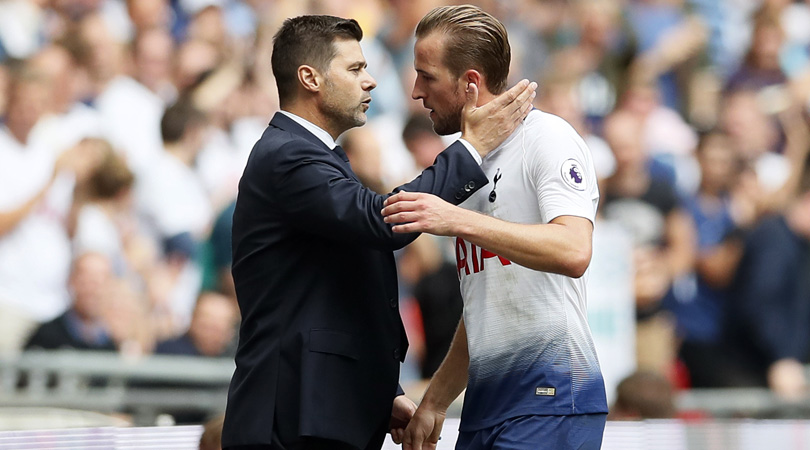
SEE ALSO Success has created its biggest victim in Mauricio Pochettino – and yet still he defies expectations
The unkind view is of a club whose reputation exceeds their lack of success. A top-flight side for 40 consecutive years, yet which last won the league in 1961. For a long time, Spurs were a sort of London-based Newcastle United – a club with a reputation for exciting football and a large fanbase, but not a serious contender. Lads, it’s Tottenham, and all that.
Yet the there's been a rise over the last decade, built by a fine academy, savvy transfers and a smart young manager (Mauricio Pochettino – no offence, Tim Sherwood). As importantly, there’s been investment in training facilities and a 62,000-capacity stadium set to open this season. We assume.
Rivals carp about a lack of trophies, but Tottenham are now in their third consecutive season in the Champions League. If you keep trading blows with the likes of Real Madrid, Borussia Dortmund and Juventus, you start to appear as though you belong at that level. Fans are understandably frustrated by this summer’s bizarre lack of transfer activity, but Spurs are a club starting to live up to their high reputation at last.
5. Manchester City
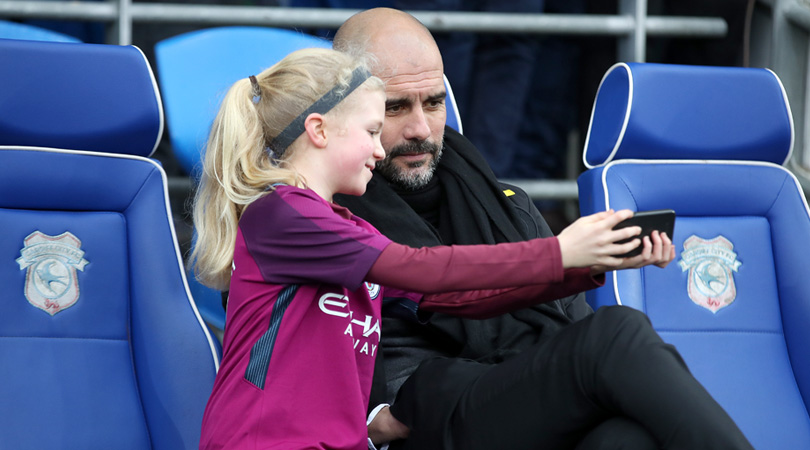
RECOMMENDED 10 years since the takeover: How Manchester City transformed after a 30-year odyssey of failure
By far the trickiest club to place. City fans can point out that they are England’s best side, boast the world’s most coveted manager and the league's second-highest turnover. Critics will say the club had no history until they won the Sheikh lottery and, in terms of real worldwide esteem, belong below Everton.
The truth is somewhere in middle. City do have history; a successful club in the late ’60s and early ’70s, before their hardcore support were sorely tested by decades of undignified lows. Then the takeover a decade ago changed everything, in terms of transfer largesse, but also work done on training facilities and youth development to cement their new status.
The main reason this list doesn’t reflect City’s position atop the Premier League is that fan support – in the UK and globally – is yet to truly catch up. That may change. There’s probably a young generation of fans, from East Anglia to East Asia, growing up entranced by City’s dazzling football. But a lack of real, widespread fandom does lower City’s status. For now.
4. Chelsea
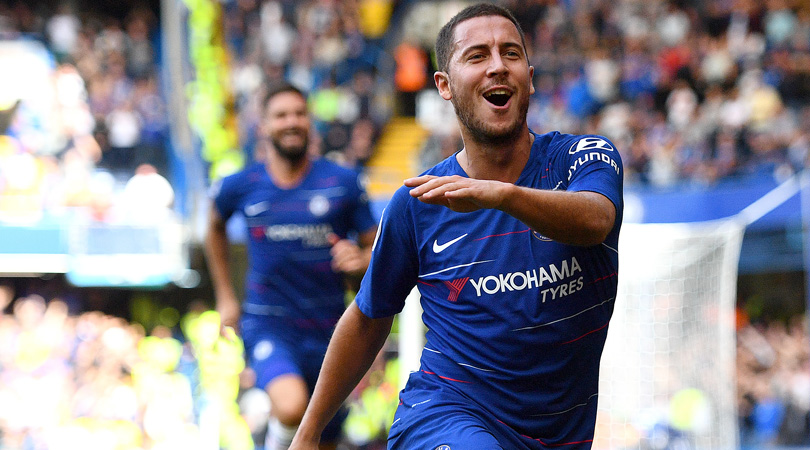
The Blues were once simply London’s third-biggest team, with a reputation for producing more stylish showboaters than silverware. True, they had reached fourth spot in the Premier League – and won cups at home and in Europe – before Roman Abramovich brought his billions in 2003. But that’s when it all really changed.
Since 2003, Chelsea have won five Premier League titles (a total only Manchester United can match), as many FA Cups and become the first London club to be crowned kings of Europe. Crucially, the Blues got big at the ‘right’ time; when the reach of the Premier League and Champions League was expanding fast.
As a consequence, while they fall below the three clubs atop this list in terms of UK interest, they have a good global following – particularly in Africa, thanks to interest raised by the displays of Didier Drogba, Michael Essien and John Obi Mikel. A move from Stamford Bridge is overdue, but that aside, Chelsea are a modern superclub.
3. Arsenal
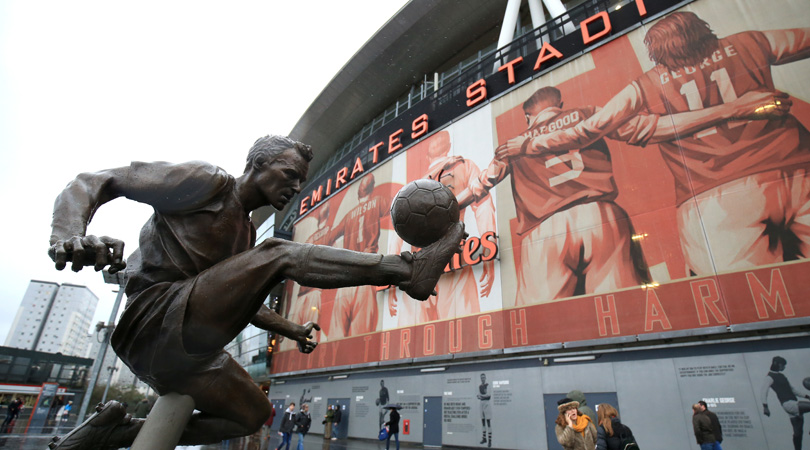
Chelsea have claimed the league five times since Arsenal last won it. Tottenham are on their third consecutive season of Champions League football, while Arsenal are on their second in the Europa League. Despite that, the identity of London’s biggest fish is clear.
There’s the 13 league titles and as many FA Cups (an all-time record). Plus the fact that Arsene Wenger arrived in the nick of time in 1996 to modernise a stumbling giant, investing in facilities, a new stadium, a sublime style of play and creating a rivalry with Manchester United that defined the late ’90s and early 2000s.
They’re also London’s best-supported club, fascinating Gooners as well as those who love to see the club fail. There’s a reason why certain YouTube channels do such huge numbers. To put their drawing power in more concrete terms: in January, Arsenal signed one of the world’s best strikers – Pierre-Emerick Aubameyang – despite zero guarantee of Champions League football. The money helps there, of course, but so does being a very big club indeed.
2. Liverpool
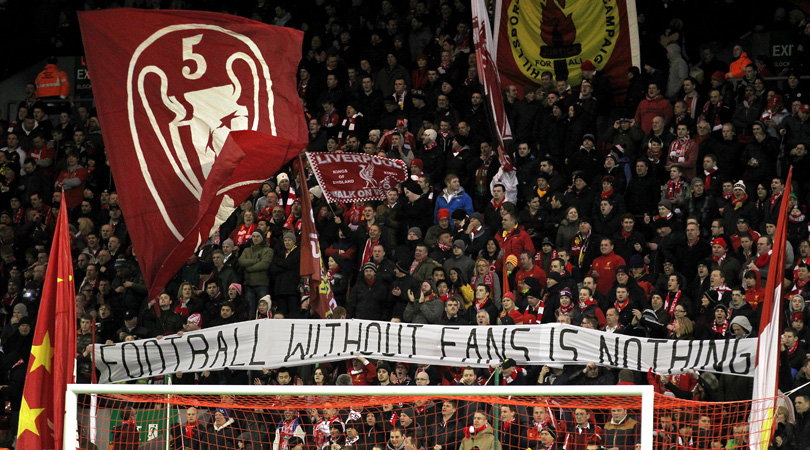
As the Anfield banners crow: European royalty. Five times champions of Europe – oh, and three UEFA Cup trophies down the back of the sofa, if you care to look. Plus just the 18 league championships.
It says something about Liverpool that, despite the last of those titles coming back in 1990, their status as a whopper of a club is rarely questioned. Rather, Liverpool’s quest to win that overdue title is the Premier League’s most gripping storyline – when the Reds are challenging, TV figures, newspaper sales and website traffic all go up.
That’s thanks to a support that’s as widespread as it is impassioned. Liverpool have suffered indignities in the last 28 years: bad managerial appointments, poor ownership and top players flying the Kop (even if things are looking upwards right now). But the fervour among believers has rarely dimmed. Simply, a football club that’s known wherever the game is played.
1. Manchester United
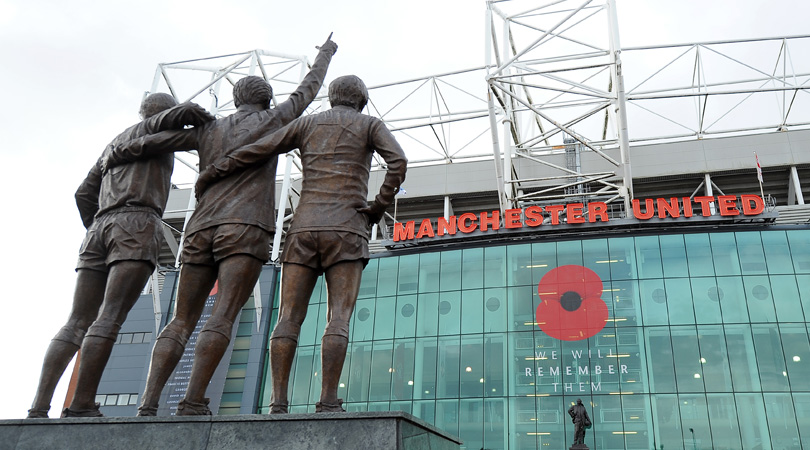
By far the easiest club to place. Manchester United’s status as England’s grandest name was forged by Matt Busby, who made United European pioneers, survived the Munich air disaster (even if many of his players tragically didn’t), then helped his side become England’s first European Cup winners in 1968.
The club floundered in the 1970s and ’80s, yet even then when Liverpool were racking up honours, you could still make an argument that United had the aura of England’s most famous club. Then Alex Ferguson arrived and went on to end almost all arguments by making United England’s most successful modern-day club, as well as its biggest draw.
Even in their post-Fergie strife, they’re the biggest news story in town. Listed as the most valuable football club in the world after overtaking Real Madrid in 2017, it will take more than stodgy football and muddled thinking at the top to knock Manchester United off their perch just yet.
Alex Reid is a freelance journalist and the former digital features editor at FourFourTwo. He has also written for the Guardian, talkSPORT, Boxing News and Sport magazine. Like most Londoners, he is a lifelong supporter of Aberdeen FC. He is deceptively bad in the air for a big man. He has never been a cage fighter.
